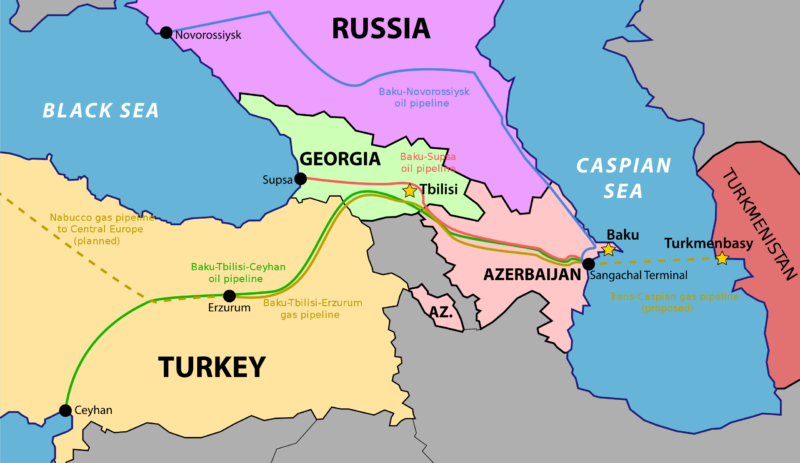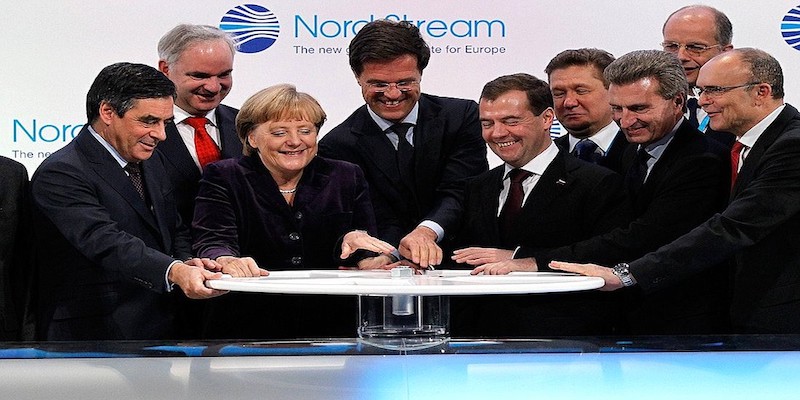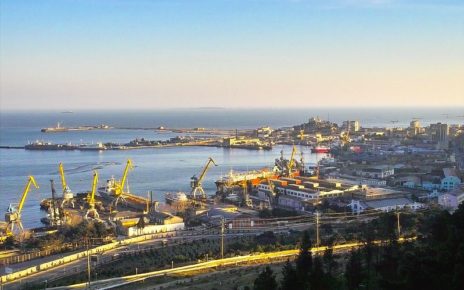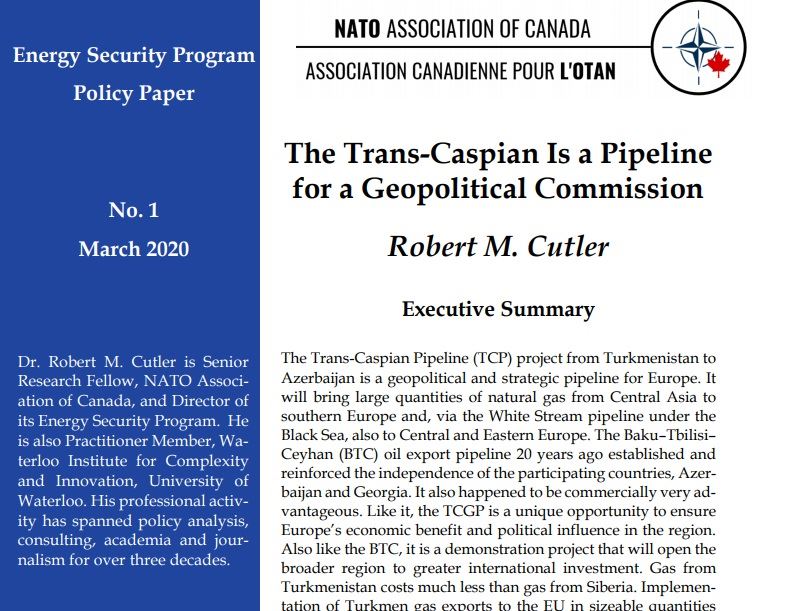Following President Donald Trump’s Nowruz (New Year’s) message to Turkmenistan’s President Gurbanguly Berdimuhamedov stating that the United States Government looks forward to seeing the Trans-Caspian Gas Pipeline (TCGP) built, the atmosphere has been changing in Washington in favor of the project.
Twenty years ago, when the project was first being discussed, the American negotiators made two strategic errors that prevented their success. First, they did not believe Russian president Boris Yeltsin would do anything without his American counterpart Bill Clinton knowing; therefore, they did not believe any Turkish-Russian agreement on the Blue Stream pipeline was likely.
Second, they did not believe technology existed to lay that infrastructure on the Black Sea’s deep sea-bed. In the mid-1980s, however, Italians had laid the TransMed pipeline from Tunisia to Sicily in waters several hundred meters deep. Russia contracted with them to develop the technology required for laying the Blue Stream pipeline in depths over 2000 meters.
The Italians delivered. Yet even then, American negotiators did not exert any pressure for the TCGP, because they were focused instead on the Baku-Tbilisi-Ceyhan (BTC) oil export pipeline–significant at the time for circumventing OPEC and Russia–and did not want to alienate Turkey, whose cooperation was essential for implementing the BTC.
Ever since then, those original American negotiators have sought to dominate the Washington policy discourse about the TCGP pipeline, badmouthing it and saying it would never be built. They have done this, because they have feared that any success in building it would expose their own failure at the end of the twentieth century.
When the TCGP project failed 10 years ago for the second time, however, this was not due primarily to their machinations. Rather, there were three reasons for that. First was the poor institutional design of the Caspian Development Corporation (CDC), which the EU tried to set up as sole purchaser of Turkmenistan’s gas, bundling European orders together. Second was the inability of Nabucco’s promoters to persuade Turkmenistan to supply 10 bcm/y without any guarantee about Turkmen gas through White Stream, whereas Turkmenistan has always aimed at strategically significant sales in the range of 30 bcm/y or more. Third was the Shah Deniz consortium’s final choice against Nabucco.
Nevertheless, even in their retirement, those old American negotiators have not stopped spreading skepticism about the TCGP Project, even after the signature of Convention on the Legal Status of the Caspian Sea last August. Now their influence has finally waned and is on the way to disappearing.
A recent article by Luke Coffey of the Heritage Foundation indicates the fact. He argues that the inter-connector project between the Azerbaijani and Turkmenistani offshore rigs can be built on the Caspian Sea bed, as the first and preliminary stage for completing a full TCGP.
The idea about the inter-connector has circulated in policy circles for many years. It used to be advocated by skeptics, who knew full well that it would never be implemented, because Turkmenistan insisted on definite guarantees for larger quantities of exports. The inter-connector would transmit 6-8 billion cubic meters per year (bcm/y) of natural gas, but the TCGP has always been planned for 30 bcm/y.
However, the mere fact that Coffey admits the possibility of construction the complete TCGP signifies that the policy idea is taking up a new life in Washington. Of course the European Union is strongly promoting the idea and is co-financing the preliminary front-end engineering design and other studies required for its implementation.
But now, American diplomacy is indicating its support again. As George Kent, Deputy Assistant Secretary in the European and Eurasian Bureau at the U.S. Department of State, put it, “We have many opportunities to deepen our relations in the economic side, [including our long-term] focus on the strategic issues in the energy sector.”
In Kent’s view, “The Southern Gas Corridor is a fantastic multi-country huge infrastructure development that brings not only Azerbaijani gas but potentially [gas] from Central Asia to the markets in Europe [and] that increases the energy security of the entire continent, not only Azerbaijan and Georgia.” The SGC is a particular example of projects that “help energy security in Europe and also help connect Central Asia with Azerbaijan”.
Russian diplomacy, now seeking to block Chinese influence in western Central Asia, tacitly agrees that this is not a bad idea. Adding to the momentum, Russia’s Foreign Minister Sergei Lavrov has positively evaluated and fully supported Turkmenistan’s initiative for an all-Caspian economic co-operation summit, now scheduled for August 2019 in the port of Turkmenbashi. Turkmenistan’s President Berdimuhamedov had suggested such a meeting already at the August 2018 Aktau summit where the Caspian Convention was signed.
There is now bipartisan support, even in the divided U.S. Congress, in support of this initiative. On nearly the same day when Trump sent his Nowruz message to Berdimuhamedov, saying he looked forward to the construction of the TCGP, the Democrat-controlled U.S. House of Representatives approved the “European Energy Security and Diversification Act of 2019” by the overwhelming bipartisan majority of 391-24.
That bill would “prioritize and expedite the efforts of the Department of State and [its] agencies in supporting the efforts [for energy infrastructure projects] of the European Commission and European and Eurasian countries”. This is not limited to the TCGP but includes it. There is now a major diplomatic consensus among all the main players that this pipeline needs to be constructed.
Photo: Map of the existing and planned oil and gas pipelines from Baku, including the Trans-Caspian Gas Pipeline (far right) (August 10, 2008) Thomas Blomberg via Wikimedia Commons. Public Domain.
Disclaimer: Any views or opinions expressed in articles are solely those of the authors
and do not necessarily represent the views of the NATO Association of Canada.




